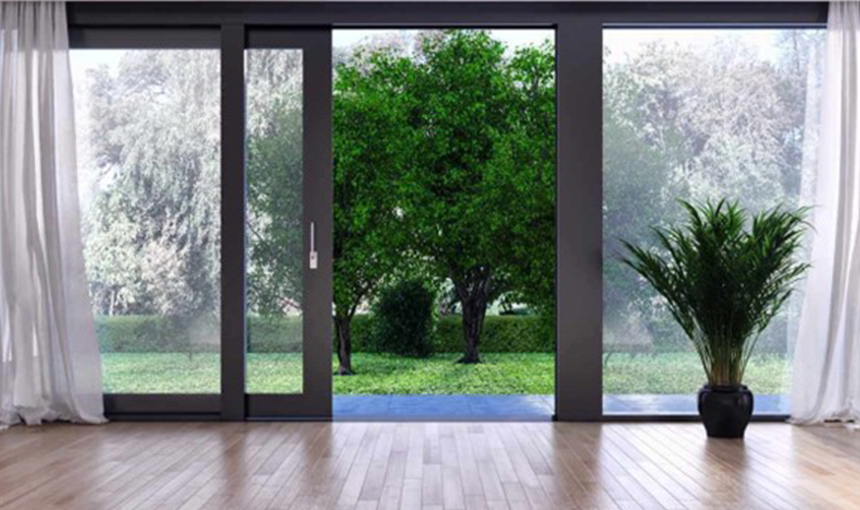Top 10 Commercial Applications for Soundproof Sliding Doors
Doors are often overlooked in a building's design, yet they play a critical role in controlling sound transmission in commercial spaces. For offices, stores, theatres, music venues, and more, the ability to contain or block noise can significantly impact productivity, customer experience, and overall functionality. The sliding doors' versatility and noise reduction capabilities have made them an increasingly popular choice for commercial settings looking to strike the right acoustic balance.
With advanced soundproofing technologies, stylish aesthetics, and flexible configurations now available, strategic use of soundproof sliding doors allow commercial spaces to limit distractions and disturbances in key areas without sacrificing natural light and an inviting atmosphere.
In the section below, we'll discuss the applications of Soundproof sliding doors.
Overview of Soundproof Sliding Doors
Soundproof sliding doors allow spaces to limit noise transmission while retaining an open, welcoming layout. Unlike hinged doors, sliding models don’t require extra clearance space to swing open. With specialised construction using dense materials and advanced seals, these acoustic doors effectively contain sounds within or block external noises.
Stylish and space-saving, soundproof sliding doors prevent sound leaks between rooms without closing spaces off visually.
Commercial Applications of Soundproof Sliding Doors
1. Recording Studios
Recording studios need effective soundproofing to capture clean, flawless audio takes. Specialised sliding doors with acoustic engineering help block outside noises from entering the studios. This allows the rooms to become sanctuaries of silence, ideal for recording. The doors' muted sliding operation does not disrupt the creative focus and concentration needed for precision recording work.
2. Classrooms
Soundproof sliding doors in school and university buildings help block noisy hallway commotion from reaching campus classrooms. By attenuating sound levels, the doors create a peaceful, studious environment for students inside the rooms. The muted acoustics also aid students in maintaining better focus and concentration without distracting sounds.
3. Music Room
Soundproof sliding doors for music rooms and practice studios help contain loud sounds inside. The specialised doors prevent noises like instrument playing or singing from escaping the rooms and permeating other building areas. By blocking and muting the music, the soundproof doors stop sounds from bothering other people working or residing in nearby spaces. The doors' quiet sliding operation also helps keep practice noise fully contained inside.
4. Hospitals and Clinics
Hospitals and clinics can often become noisy environments due to high activity levels, disturbing patients and undermining privacy. While signs may ask for quiet inwards, loud sounds still frequently occur. Installing soundproof sliding doors is an effective solution to help insulate patient rooms and block unwanted noise. Positioning the noise-attenuating doors at room entrances or hallways helps prevent loud outside sounds from reaching patients.
5. Office Cabins and Conference Rooms
Corporate buildings need soundproof cabins and conference rooms to enhance concentration, accuracy, and productivity. Installing soundproof doors will not only help to make the rooms and the environment peaceful and disciplined, but it will also help to enhance the looks and style of the corporate buildings, ensuring safety and low maintenance.
6. Partitions
The soundproof sliding doors help to create partitions in corporate areas or co-working spaces, providing a peaceful and composed environment for employees or co-workers.
7. Residential Areas
In homes, soundproof doors are an attractive feature for both builders and homeowners. Integrating noise-blocking doors adds value to residential settings in multiple ways.
8. Theatres
Theatres can cause noise pollution and disturb the surroundings. Soundproof entrance doors reduce escapes by keeping the sounds inside. This prevents community disruption.
9. Restrooms
Offices need sound barriers to respect privacy. Soundproof doors muffle noise leakage, helping employees stay focused in tranquillity. The doors also enhance security, and smooth access aids productivity.
10. Confidential offices
In office settings, private individual offices should integrate soundproof doors to better secure confidentiality. Soundproofing contains sensitive discussions happening inside closed rooms, preventing voices and conversations from being overheard.
Conclusion
Soundproof sliding doors provide myriad benefits for commercial settings. Diverse designs and options suit specialised purposes. AIS Windows expertly installs optimal soundproof doors. Our acoustic engineers assess needs and curate customised noise abatement solutions.



